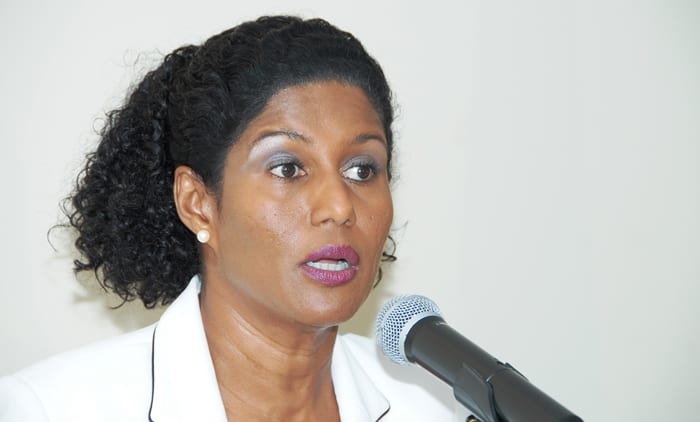The Ministry of Social Care is in the process of enacting legislation to protect the disabled community in this country and a draft Bill was now before the Chief Parliamentary Counsel.
In her address on Thursday at the Congress of Trade Unions and Staff Associations of Barbados’ Midterm Delegates’ Conference at the Courtyard by Marriott Hotel, Minister of Labour, Senator Dr. Esther Byer Suckoo, expressed optimism that the Bill would be debated soon.
She intimated that “sometime in the very near future, we will have on our statute books, legislation to protect one of our society’s most vulnerable groups”.
Dr. Byer Suckoo contended that over the years, Barbados had sought to create mechanisms to maintain high standards of care and due diligence regarding the rights and protection of the disabled.
In this regard, the Minister of Labour said significant efforts had been made to provide support services to integrate persons with disabilities into the labour force through skills training provided by the National Disabilities Unit.

Minister of Labour, Senator Dr. Esther Byer Suckoo, speaking at CTUSAB’s Midterm Delegates’ Conference at the Courtyard by Marriott Hotel yesterday. (B.Hinds/BGIS)
Given this scenario, the Minister told her audience that one must dispel the notion that a disabled person was one who was unable to help themselves, effectively function in society, or someone who was confined at home and unable to work.
“We should all be aware now that disability and disabled persons form a spectrum. You have those with mild disabilities to those who have extreme and severe disabilities. So, there is no one cap fits all; we have to realise that there is a spectrum. I am hopeful by now that all of you will agree that disability does not signify inability. In fact, in most cases, it is not inability,” she emphasised.
Senator Byer Suckoo reminded the participants that the ‘differently-abled’ were just as valuable to the island’s economic growth and prosperity as able-bodied workers, and that all efforts must be made to ensure that they were not marginalised.
“As a nation, it is imperative that we must never forget that our overall productivity and growth is dependent on the inclusion of all persons in our labour force. When all individuals are engaged in decent employment, it not only reduces unemployment figures, it also reduces the burden on those state agencies mandated to provide services; provides support to families; and gives the individual a sense of self-worth,” she underlined.
